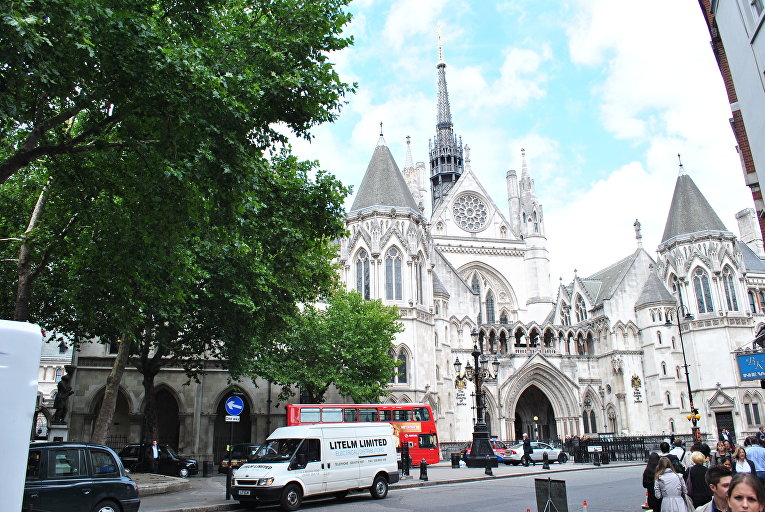MOSCOW, May 7 (RAPSI) – London's High Court has put an end to a dispute linked to the Graff jeweler saying that businessman Dmitry Tsvetkov has fulfilled his obligations to his former business partner Rustem Magdeev.
Magdeev claimed that Tsvetkov owed him more than $10 million. However, London's High Court ruled that Tsvetkov had payed off the sum. “Nearly all of the US$10 Million Loan was repaid to Mr Magdeev on the basis of the “accepted” payments; Once “disputed” payments are taken into account the full US$10 million was repaid,” the court ruling at RAPSI disposal reads.
Magdeev filed his claim with the London's High Court in December 2017.
Tsvetkov denied allegations regarding debt obligations. He, in turn, asserted counterclaims, stressing that the claims against him were brought due to a bad financial standing of his former partner.
According to the court records, Tsvetkov was engaged in the sale of jewelry produced by Graff Diamonds Ltd. since 2011, while Magdeev decided to invest in this business two years later - in June 2013.
As the business prospered, Tsvetkov, as he claimed himself, incorporated in 2014 in Dubai EK Diamonds, a company that was officially owned by his wife Elsina Khayrova and that was supposed to carry on the Graff business. Soon afterwards, Magdeev introduced Tsvetkov to Emil Gaynulin, who decided to become a partner in the joint business.
London's High Court paid attention in its ruling to the disagreements between Magdeev and Gaynulin, focusing on threats against Gainulin in terms of persecuting him personally.
In the meantime, in October and November 2014 Graff offered Tsvetkov additional discounts on its products if he could arrange for a further US$30 million investment. Graff also offered him the opportunity to open a franchise in Cyprus. In order to operate the new Graff franchise, Tsvetkov founded a new company, EKLG, which was appointed the sole and exclusive distributor of Graff products in Cyprus.
According to Tsvetkov, Magdeev invested in their joint business not his own money and at some point he had to repay it.
Mrs Justice Cockerill noted in her ruling that Magdeev “was having cash flow issues”. Consequently, Magdeev put pressure on Tsvetkov with the aim of buying out his share of the Graff business, and this pressure obviously increased later in 2016, according to court records. This situation allegedly led to the business failure.
Tsvetkov alleged that Magdeev threatened him with legal action in April 2017. Soon afterwards, there was a meeting between Magdeev and Tsvetkov that was also attended by Radik Yusupov, who was well-known for his associations with organised criminal groups, according to the records of London's High Court.
Yusupov “acted as a mediator, saying that he was there to settle the conflict between Mr Magdeev and Mr Tsvetkov.”
Notably, one of the issues discussed at the meeting was an opportunity for Magdeev to quit the Graff business.
Yusupov was said to be the leader of Sevastopolskiye criminal group. Members of this group were prosecuted and brought to justice in 2008 through 2010. They were found guilty of 12 acts of manslaughter, and Yusupov was reported to have pleaded guilty.
Alexander Gomzin, the general director of the Simonov Experimental Design Bureau, earlier notified Russia's Federal Security Service (FSB) that Magdeev might be an acquaintance of Yusupov. Gomzin claimed that Magdeev allegedly tried to extort $5 million from him for protecting the bureau.
The hearings in the case brought by Magdeev in London's High Court took place in January and February. According to Mrs Justice Cockerill, Tsvetkov was “more impressive and credible witness” than Magdeev, whose evidence was “often inconsistent.”
The Times reported that the legal expenses of both parties to the lawsuit amounted to £6 million. It is the common practice that the losing party pays legal expenses of the other party as well, which means that it is time for Rustem Magdeev to pay the bills.



